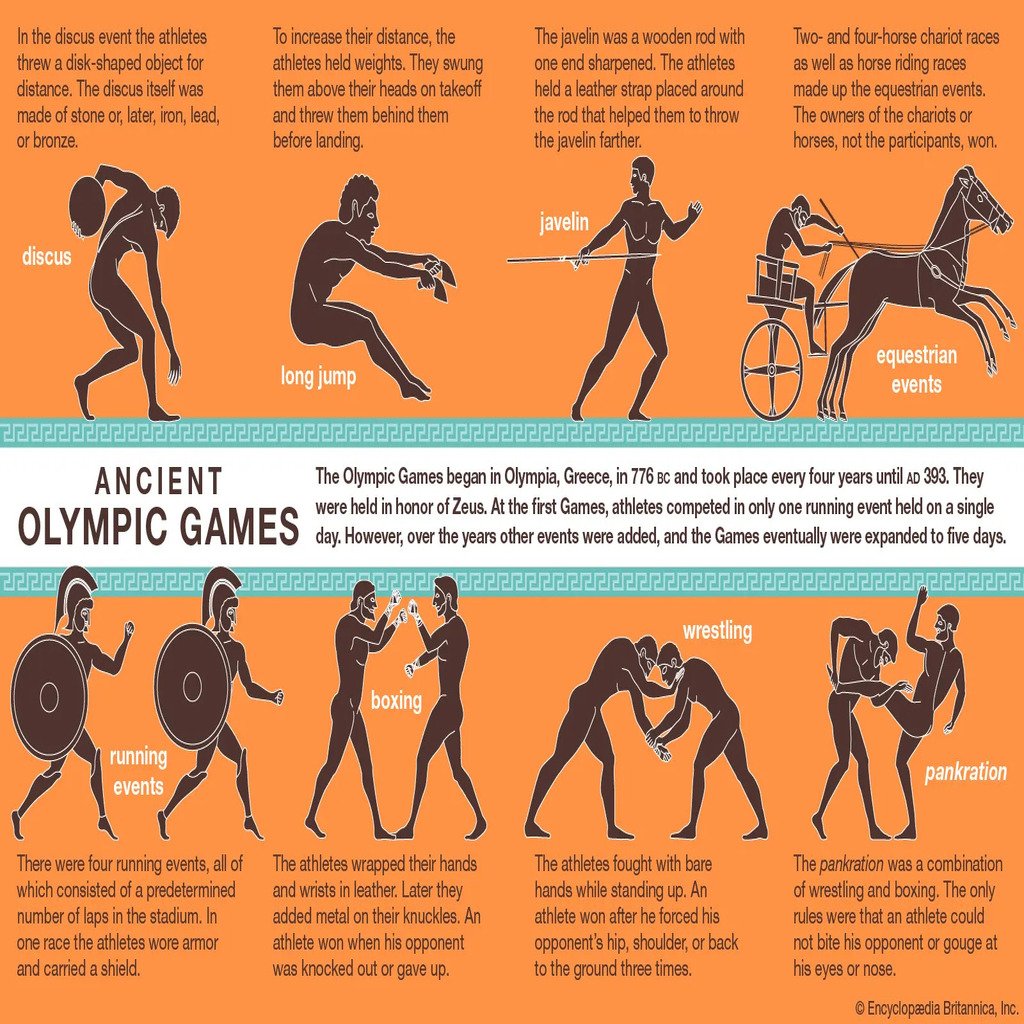The Evolution and Legacy of the Olympics

The Olympics, a grand celebration of human athleticism and unity, exemplifies the timeless spirit of competition. Its transformation from ancient tradition to a global spectacle unfolds as a compelling story of evolution and resilience across millennia.
Ancient Origins
The ancient Olympics began in Olympia, Greece, around 776 BC, in honor of Zeus, the king of the gods. What started as a local festival soon grew in significance, evolving into a major quadrennial event that drew athletes from all corners of Greece.
Panhellenic Games
The Games extended beyond Olympia to encompass the Pythian, Nemean, and Isthmian Games, collectively referred to as the Panhellenic Games. These events not only highlighted exceptional athletic talent but also served as platforms for cultural exchange and strengthened bonds among Greek city-states.
Decline and Revival
With the rise of the Roman Empire, the Olympics gradually declined and were ultimately abolished by Emperor Theodosius I in 393 AD, marking the end of their ancient grandeur. Yet, the enduring spirit of the Games remained, poised for a revival in the modern era.
Modern Revival
In 1896, Athens reignited the spirit of the ancient Games by hosting the first modern Olympics. Spearheaded by Pierre de Coubertin, this revival focused on global involvement, featuring 241 athletes from 14 nations who competed in nine sports.
Evolution and Expansion
Since its revival, the Olympics have evolved significantly, adapting to the changing times. From the inclusion of new sports to advancements in technology and infrastructure, each edition showcases the relentless pursuit of excellence.
Symbolism and Legacy
Beyond mere competition, the Olympics symbolize unity, peace, and understanding among nations. The Olympic Flame, the iconic rings, and the oath of fair play embody the values of sportsmanship and solidarity cherished worldwide.
Final Words
The journey of the Olympics, from its modest beginnings in ancient Greece to its current global stature, embodies the triumph of the human spirit. Today, as athletes from diverse backgrounds come together to compete, the Games remain a powerful source of inspiration and a unifying force for people around the world.

Frequently Asked Questions (FAQs)
What were the original Olympic events?
How often are the modern Olympics held?
Why are the Olympic rings significant?
Who is considered the father of the modern Olympics?
How are host cities selected for the Olympics?
In ancient Greece, the Olympics showcased a range of events including sprinting, wrestling, boxing, and chariot racing. Additionally, the pentathlon was a key highlight, comprising five disciplines: running, long jump, discus throw, javelin throw, and wrestling.
The modern Olympics occur every four years, alternating between the Summer and Winter Games.
The Olympic rings symbolize the unity of the five continents and the gathering of athletes from across the globe. Each ring represents one of the five continents: Africa, the Americas, Asia, Europe, and Oceania.
Pierre de Coubertin, a French educator, is recognized as the father of the modern Olympics due to his pivotal role in reviving the Games in 1896.
Host cities are chosen through a competitive bidding process managed by the International Olympic Committee (IOC). The selection process evaluates various factors, including infrastructure, accommodations, and long-term legacy plans.